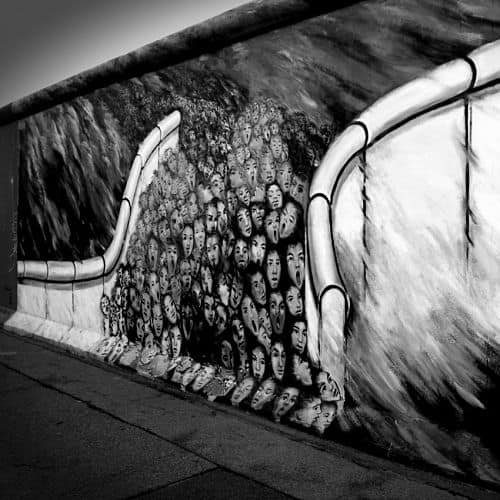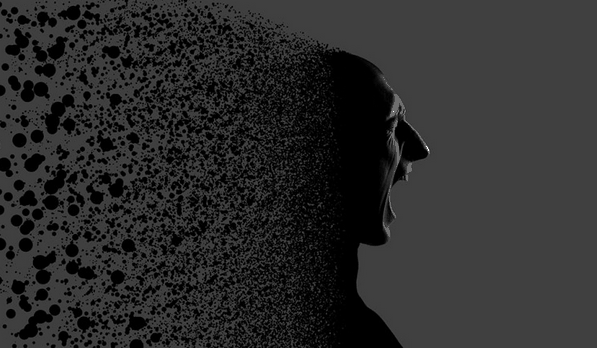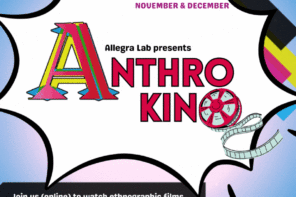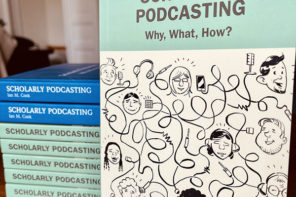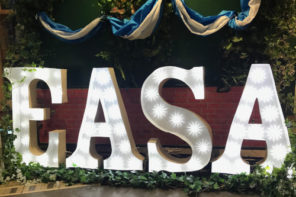You know us: we do not want to miss a single opportunity to publicise hot and exciting events on the anthropological calendar. And because times are dark (to say the least), you will notice that our february list of events is dominated by topics that illustrate the grim reality that surrounds us: crisis, violence, islamophobia, racism… Fortunately, our discipline can and SHOULD be part of the solution for a better world. So join the Sapiens-Allegra competition and become the next Margaret Mead…or simply attend one of the events listed below, and report to us!
Also: Do get in touch with Andrea at andreak@allegralaboratory.net or audef@allegralaboratory.net if you want your event to feature in our February list or if you feel like writing a short report.
Competition: Will the next Margaret Mead please stand up? The Sapiens-Allegra competition to discover new public anthropologists.
The anthropologist is a peculiar creature. We study the world, yet too often do not share our insights with the world.
Our work explores some of the most exciting and relevant issues that face humanity. We study our collective origins, the origins of violence, economic injustice, health disparities, our relations to family, constructions of “race,” education systems, how cities organize themselves, how we talk, climate change, emerging digital worlds, and so much more. But all too often we conclude our research into these vitally important topics with texts that are accessible only to a narrow group of academics.
To encourage anthropologists to write about their work for a broader audience Allegra and SAPIENS have partnered to launch a competition for more engaged types of anthropological writing.
We invite submissions for timely and engaging articles that are accessible yet authoritative, exciting yet not sensationalistic. In particular, we welcome narrative-driven submissions that will appeal to a broad, adult college-educated readership, while demonstrating how anthropology contributes to a shared understanding of our world. [more]
Deadline for submissions: 1 June 2016
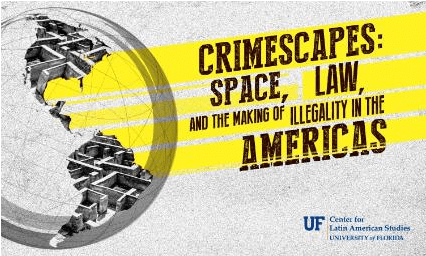
24-26 March 2016, Center for Latin American Studies, University of Florida
The 65th Annual Conference of the Center for Latin American Studies, CRIMESCAPES: Space, Law and the Making of Illegality in the Americas, taking place on March 24-26, 2016, invites to consider how legal and criminal acts are variously constituted across distinct geographical and social spaces throughout the Americas, above all where informal localized rules of legitimacy meet and even contest state and international regimes of law.
Our focus will be on the spatial dimensions of law, especially those thrown into relief when everyday, class-based anxieties about insecurity meet opportunities for (ill-gotten) wealth. Spaces of law are made and transgressed by altering material environments through the construction of walls, outposts and prisons, by marking and counter-marking territories, and through practices of surveillance, policing, and trespass. Yet they emerge no less through competing narratives over which acts should be deemed crimes, which people deemed criminals, and what kinds of transgressions must be stopped and punished. [more]
You can register here.
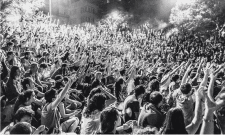
30 September – 1 October 2016, Boston University
THE SOCIAL is the title of the 4th International Association for Visual Culture Biennial Conference (IAVC2016@Boston). You can visit the conference site at OCR Visual Culture 2016. IAVC2016@Boston invites papers, presentations, interventions, collaborations, and events from researchers, artists, academics, curators, and activists on post-democracy, post-society, anger, violence, future visions, crisis, zombie democracies, social media, neo-slavery, post-capitalism, post-data, social evolution, revolution, actionism, post-state, interventionism, cannibalizing corporativism, post-colonialism, economic vampirism, neo-serfs, globalized thievery, art activism, red art, insurrectional art and social exploitation.
Analyses that explore the current failures or failing status of contemporary society and its revolts will take the form of events, panels and exhibitions in Athens, Istanbul, London, New York and internationally, leading up to the main conference on September 29th, 30th and October 1st, 2016 in Boston.
Visions of social democracy, visualization of the contemporary economic crisis, interpretations and analysis of revolts, data enslavement and rebellious usages of contemporary digital media are all parts of some of the projects and papers that we invite contributors to present.
The conference wishes to challenge and alter traditional academic interpretations and deal passionately with issues and topics that analyze, describe and envision ways and means to engage with what is left of the concept of society and social values in order to create a ‚world picture’ of contemporary times. [more]
Deadline for submission of abstracts: 20 February 2016

19-20 May 2016, Iasi, Romania
Migration has become lately one of the most debated themes, both in mass media, film, literature, and in international institutions and policy-making associations. Yet, the challenges determined by this phenomenon are not brand new; migration is a trans-historical process, with tremendous political, economic, social, religious, and cultural implications. Thus the intensification of these movements in the contemporary world, especially in Europe, puts migration under an even stronger emphasis.
This new analytical interest does not derive only from the amplification and diversification of human migration on objective grounds such as globalization, labor free circulation, mobility and offshoring, which have led to the massive desertion of underdeveloped regions and conflict areas. The present-day nomadism, either collective or individual, should be included within a broader, post-nationalist paradigm, developed in the aftermath of macro-states and enhanced acculturation. Humanist and social researchers have already pointed out that the modern world is “fluid”, being devised as such by an unprecedented circulation of persons, goods, capital, ideas, information and so forth. If one endorses this perspective, then definitely migration must be looked at as an epitome of our time. Beyond its downside political, economic or social effects, migration is also considered as a creative tool for cultural production. [more]
Deadline for submission of abstracts: 17 March 2016

4-5 November 2016, University of Innsbruck, Austria
ERIF is proud to announce the Call for Contributions for its second conference Returning the Gaze Part II. Picking up from our first conference – 2014’s Returning the Gaze: Blackface in Europe – our second edition will continue to present a critical view on European racialised imagery, while approaching from a broader angle the departs from only blackface related themes.
Part II will be hosted at the University of Innsbruck, Austria on the 4th and 5th November 2016 and will examine the usage of racist and racialised imagery across the following topics:
– Introducing Europe: past and present resistance against racialised imagery
– Islamophobia: what this means for “multicultural” Europe in 2016
– Seeking asylum in fortress Europe
– Intersections of race, gender and trans/homophobia in entertainment and advertising
– Images Matter: decoding healthcare and welfare policies
– Decolonising the classroom from primary children to PhD candidates
[more]
Deadline for submission of proposals: 30 March 2016
Conference: Madness – The making sense of: madness project
10-12 July 2016, Mansfield College, Oxford, United Kingdom
Madness: What is it? Why does it exist? Where and when does it happen? How does it happen, and to whom? Like the relation between otherness and identity, madness might have always been used to define its opposite, or defined by what it is not. Madness and its absence may even be intrinsically linked to everything we do and do not, to all we aspire and escape from; it could be part of our origins and fate. But how can it be identified, described, studied and/or treated? We propose to take an interdisciplinary approach, by which we mean one that allows us to develop dialogues about the subject from different points of view, from and between different disciplines and experiences. This will partly allow us to answer the questions above, in direct relation to the specific contexts in which madness is observed, studied and/or experienced and, it is desirable, it might also allow us all to understand that, just by being humans, none of us is actually immune to it.
This international, inter-disciplinary conference seeks to explore issues of madness across historical periods and within cultural, political and social contexts. We are interested as well in exploring the place of madness in persons and interpersonal relationships and across a range of critical perspectives. [more]
Deadline for submission of abstracts: 26 February 2016

